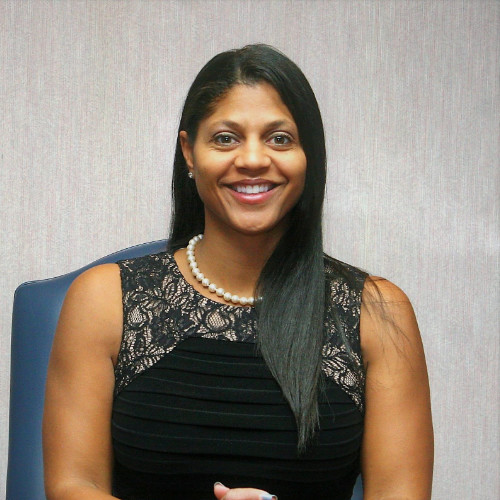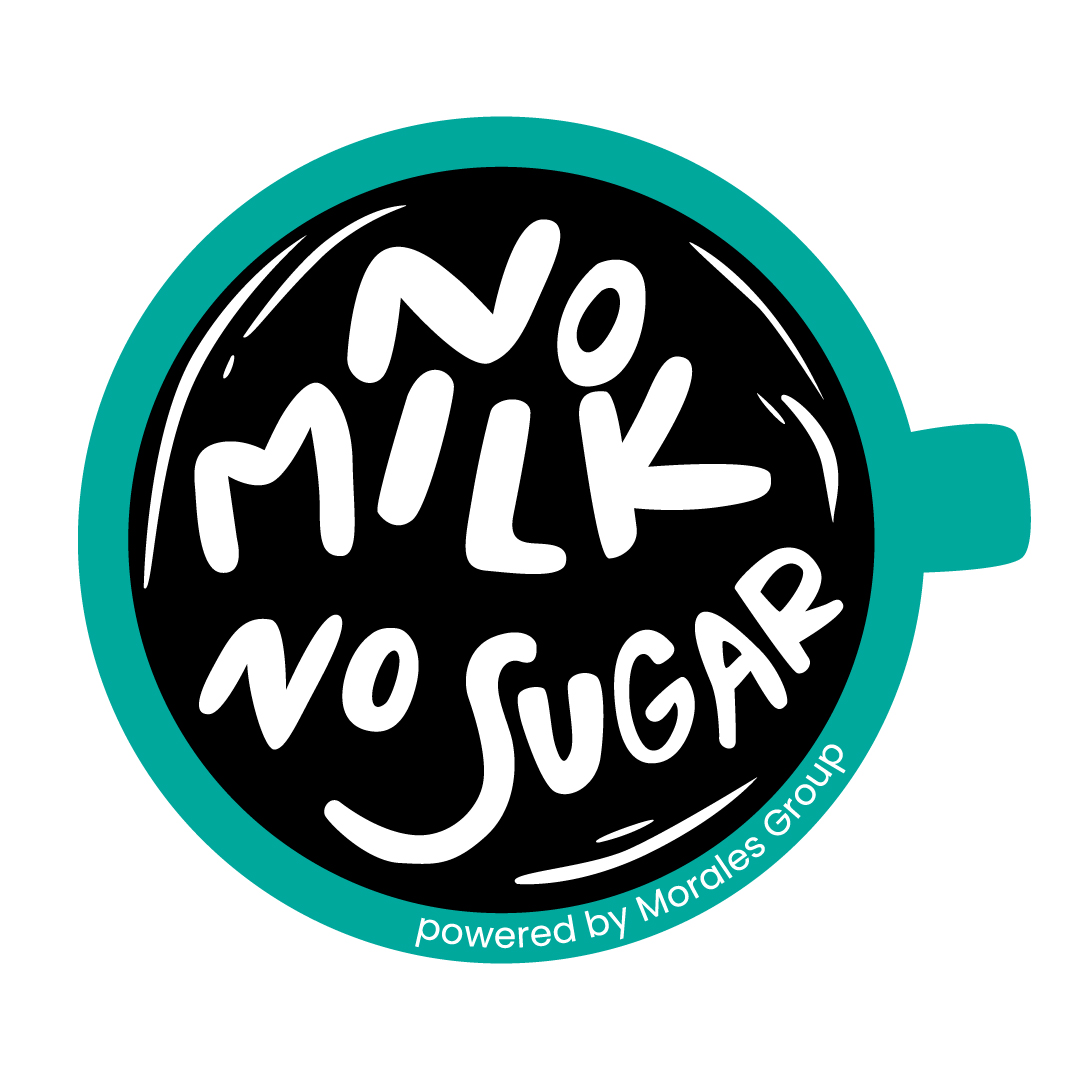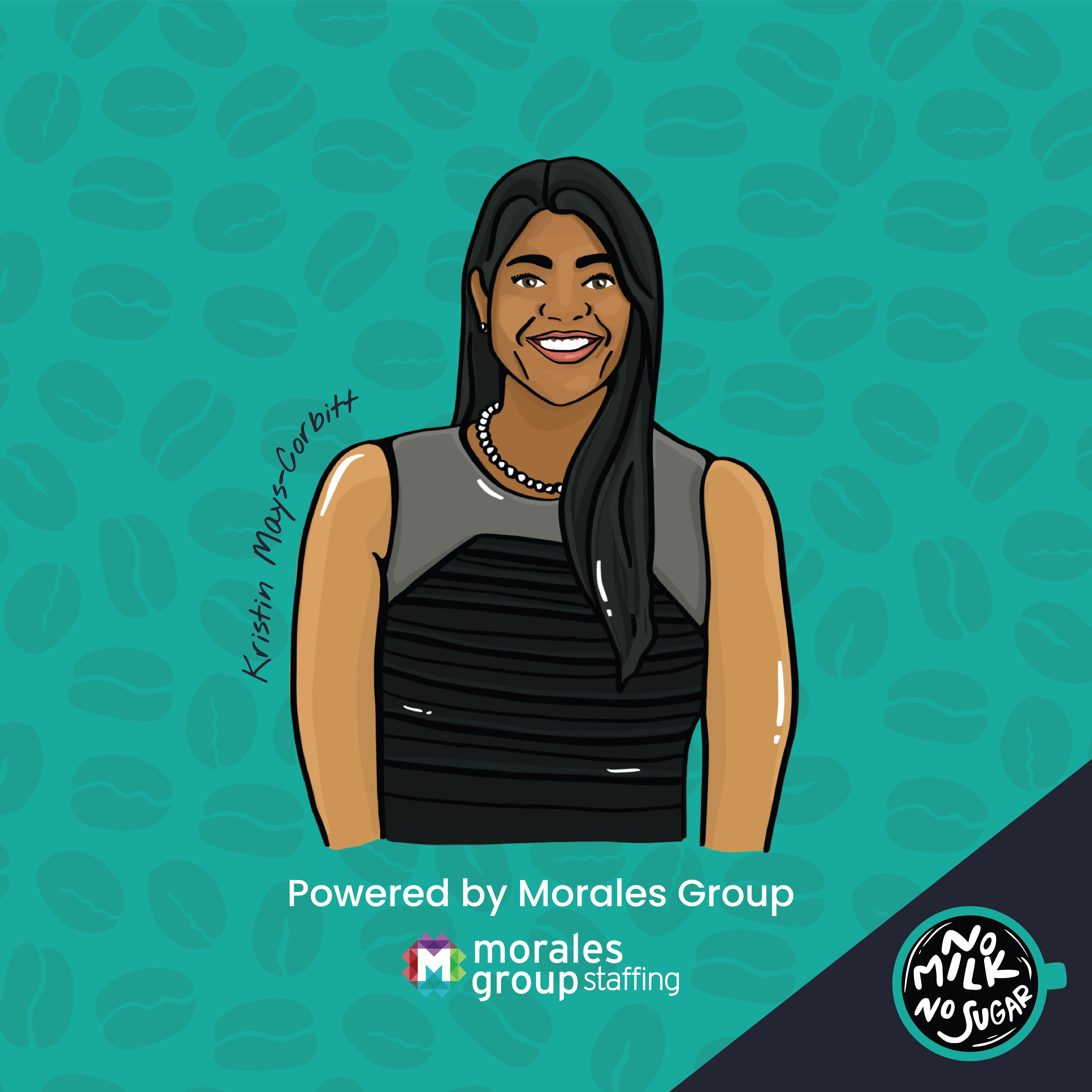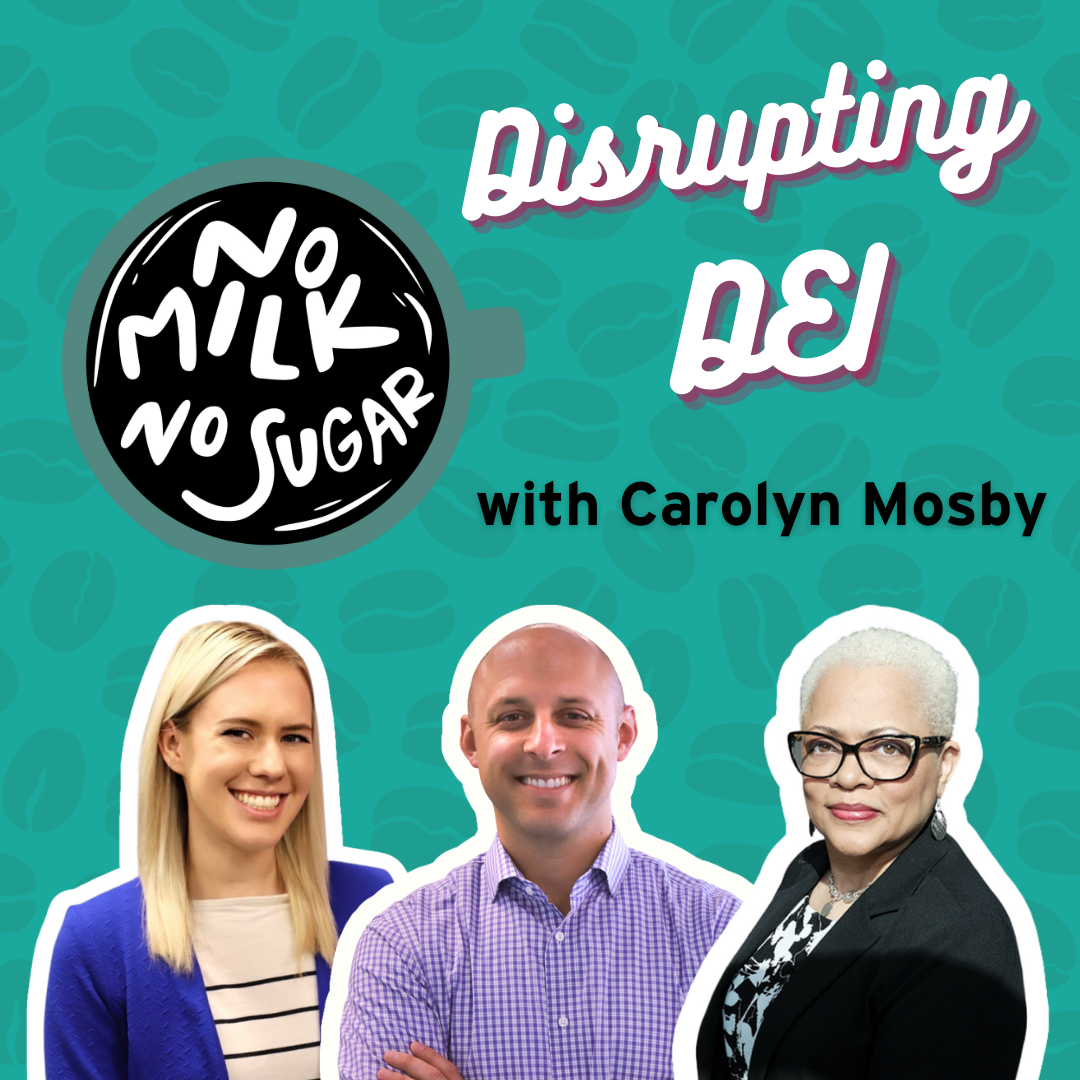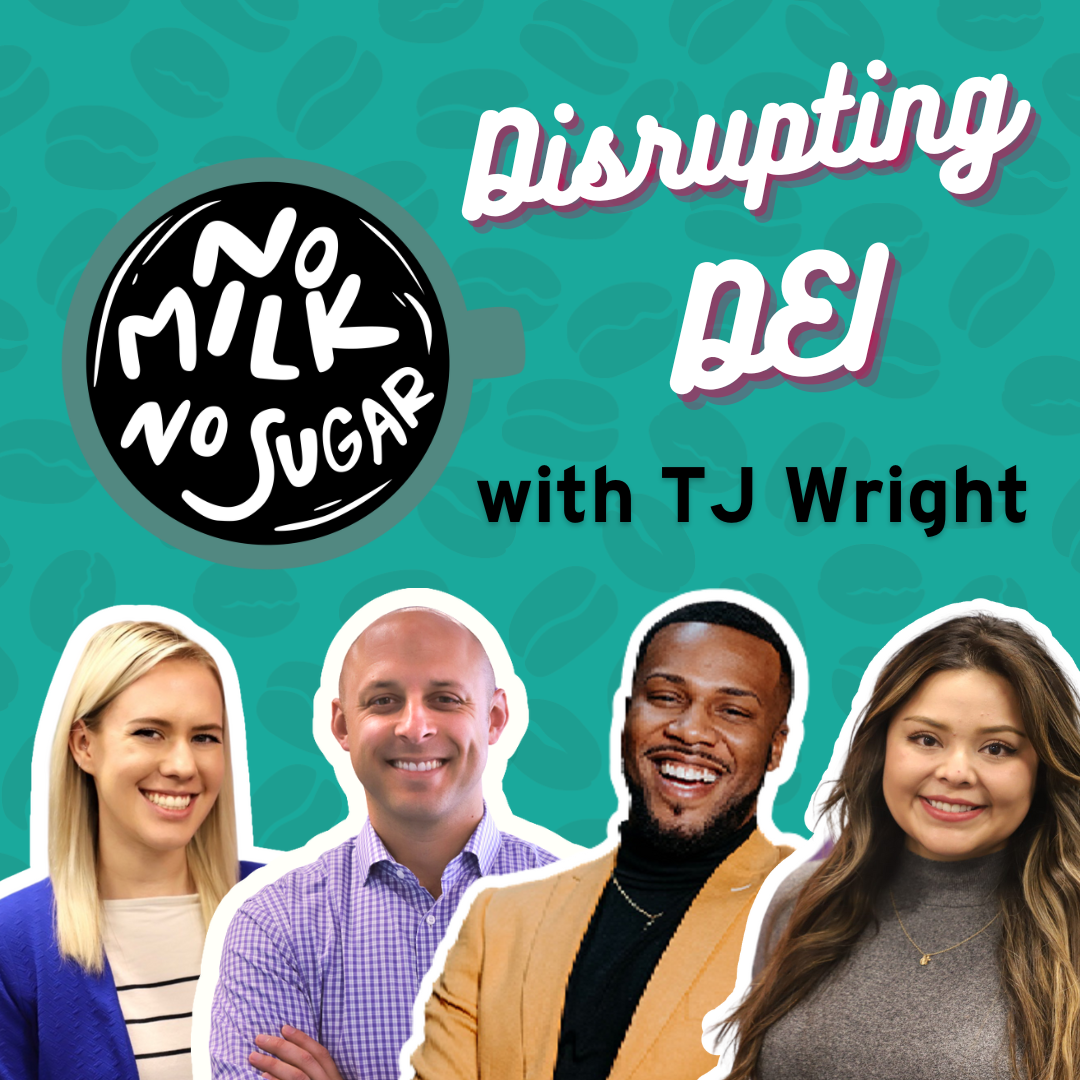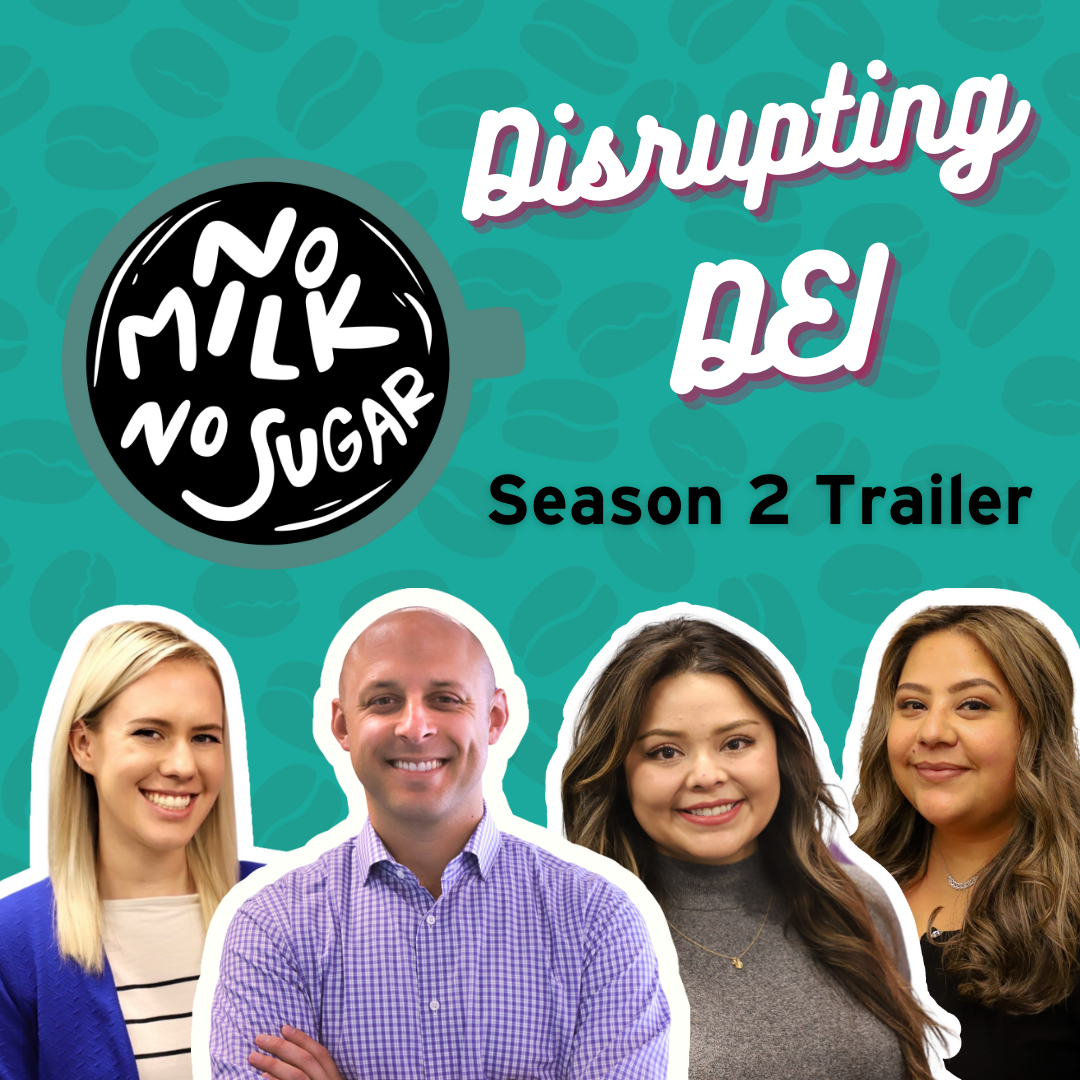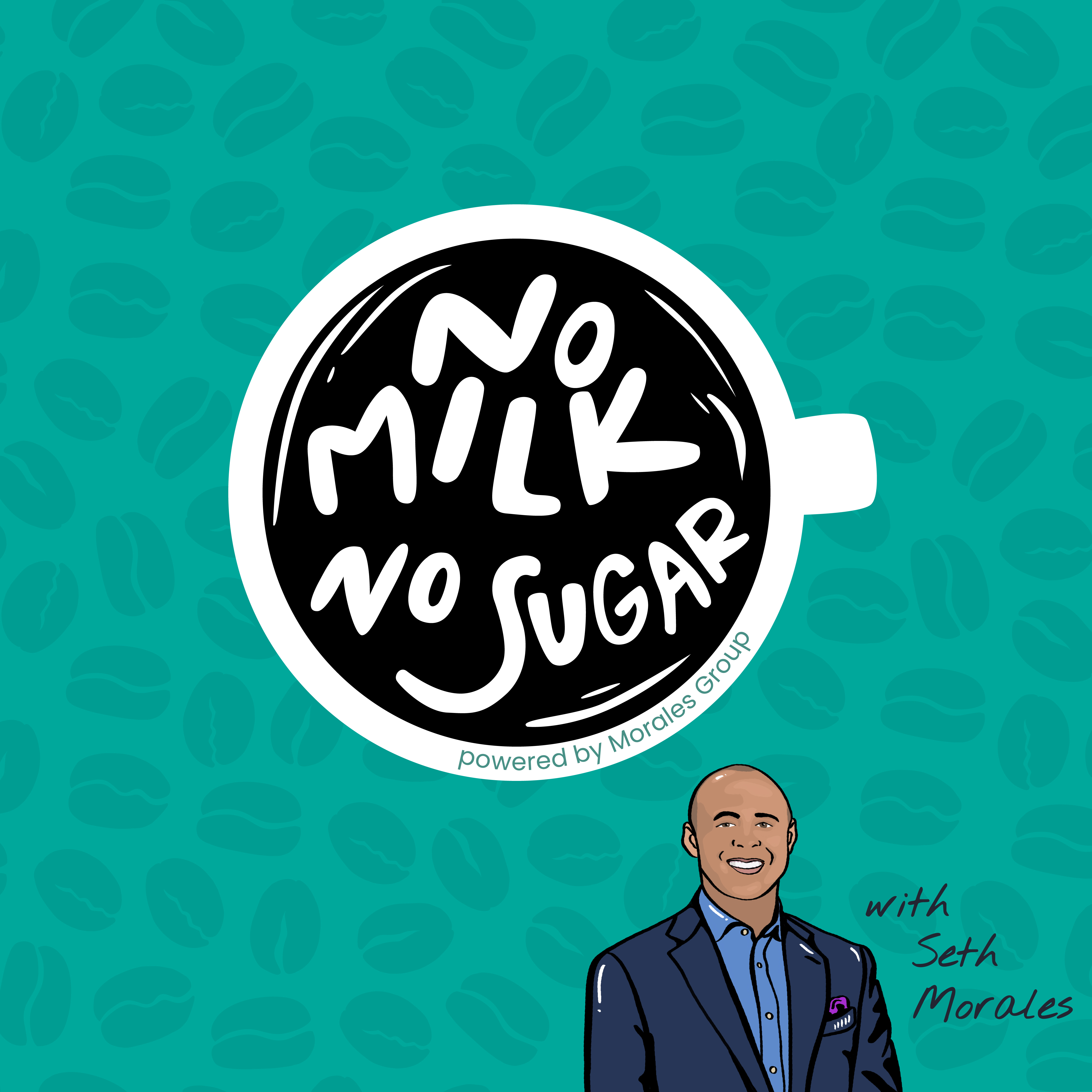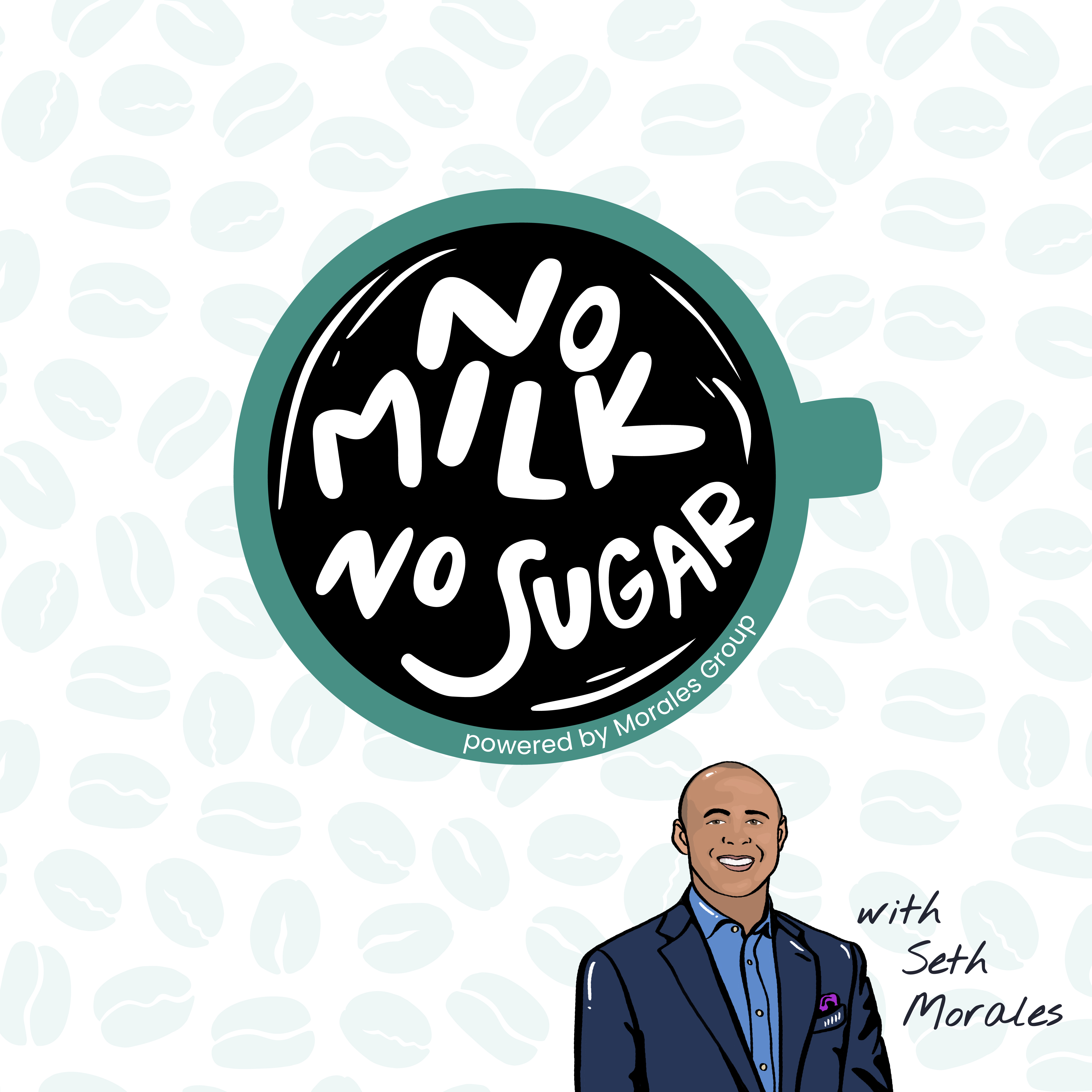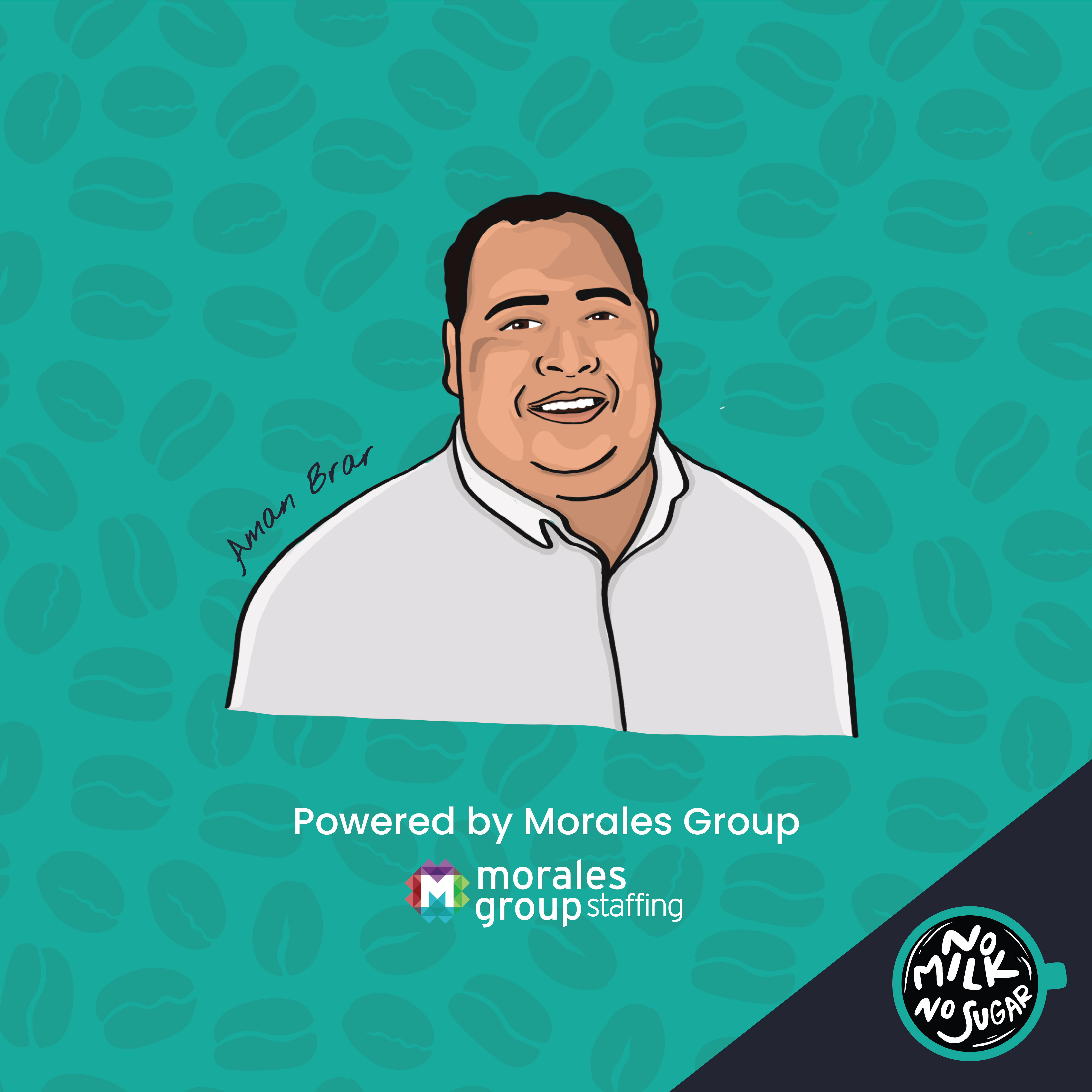Blending Future & Legacy, with Mays Chemical's Kristin Mays-Corbitt
- 0.5
- 1
- 1.25
- 1.5
- 1.75
- 2
Speaker 1: Coffee for Seth, no milk, no sugar.
Seth Morales: Right here. Thank you.
Tori: We're listening to No Milk No Sugar, the podcast about business beneath the sweetener. Powered by Morales's Group and hosted by CEO, Seth Morales, we talk to local movers and shakers about what can be the harsh reality of doing business. We cover what no one likes to advertise, but everyone wants to hear. I'm Tori, producer of the show, and today, we talk to childhood friend, legacy, and executive powerhouse, Kristin Mays-Corbitt, president and CEO of Mays Chemical.
Seth Morales: She's been a CEO for 10 years now, one of the largest minority- owned companies in the state at one point, just her dad being very iconic in the community, one of the largest Black-owned businesses, definitely in the state, if not in the country. I mean, he's pretty legendary in the Black community for entrepreneurs. He's probably the most successful Black entrepreneur since Madam C. J. Walker. Bill was and still is... Mays is still kind of that iconic minority-owned business, and Kristin runs a phenomenal large-scale company. It's very, very sophisticated. So, it's really cool to see her thriving post-her dad, and she sharpened herself just doing the IU undergrad, Kelley MBA. She's sharp. Being a CEO and leading in today's market, it's been a good challenge, I think just with running through a pandemic and weeding and thriving, that just idea of a CEO and balancing your life with a family, just you and I sharing kind of that legacy of family- owned business, what it means to carry things forward and how you do that and how you're a steward of what Mays has built and Morales Group, and then also want to kind of just have some fun and just think about you going forward, and your legacy, and how you're going to lead into the future. And I know I haven't talked to you in years. I don't even know if we had a ton of conversation back in the day, but I respectfully knew who you were. You were kind of hanging around some of my brother's friends at the time. I was kind of a secret admirer from afar. You were a touch, I think, older. Did you go to Lawrence North?
Kristin Mays-Corbitt: No, Central.
Seth Morales: It's been years.
Kristin Mays-Corbitt: It's crazy how life kind of circles back and circles around.
Seth Morales: As a young guy, I remember hearing a lot of just great stories about your dad and how he was thriving as a business leader in the community and then seeing you as one of the older kids that we looked up to. So, I just remember being an admirer, and it is neat to see a lot of this stuff come full circle. And at the time, when you were kind of hanging out at Capistrano Court, my dad hadn't started Morales Group. We didn't start until I'd finished up at Purdue. We're still kind of a younger company. We started 18 years ago. So, it's been interesting seeing this whole thing kind of play out. One kind of icebreaker we like to roll with is this. So, since this is a show that's not about sweetener, it's all about kind of the real straight- up black coffee, can you tell us about a time when something straight up did not work, where you had a flop, a fail, you dropped the ball? What comes to mind, where if there was a business moment that you just screwed up, what did that look like?
Kristin Mays-Corbitt: We had a big fail with technology back in the year 2000, Y2k. It almost put us out of business. We lost a good deal of our business. I was pretty new. I may have been here four or five years. Honestly, it was just we made the wrong choice. We thought we went with a system that could do what we wanted it to do, and it was just so rigid. And then you make the decision, right, so you're married to the decision. And so, then you kind of start throwing good money after bad, and we made all these modifications, and the system wasn't doing what we needed it to do. It was just very difficult to get around. We were losing customers because things weren't shipping. We weren't billing right. We didn't know where anything was. I can remember one particular national account. We had a hundred percent of the business in North America, and literally overnight, they pulled half of it because they said," This is not working for us." And we're trying to make it work, trying to make it work. This was probably 2001 when we implemented and we stayed with that system for about three more years. And it was one night, late at night, I'm here working, trying to fix things and just trying to kind of jimmy rig things so they'll work better. And I looked at my ops manager and I'm like," There's got to be a better way." And he's like, he said," Well, what about the system we were on?" And I mean, and this is eight o'clock, nine o'clock at night, and we just start literally Google searching our old system and kind of some upgrades that they had put in. And we look at each other and we're like," Why didn't we go with this in the first place? Why didn't we get on their upgrade path instead of trying to go shiny and new?" And I guess that's the lesson that you learn is the newest thing is not always the best thing. It was a very tough lesson for us to learn. We ended up going back to our old system, took another two, three years to get that software and implement that software and implement it right, but the efficiencies that we have. If you time it out, that's like'07,'08 by the time we really got it up and running. Very hard lesson to learn. I mean, it was a total bomb. It was a total eureka moment when we said," Let's go back to this other system." But the lessons you learn is shiny and new is not always what's best, and sometimes you have to correct course on a decision that you made and kind of throw out the decision that you did make and come up with some new options. So, very tough lesson to learn. We recovered and we recouped a lot of the business that we lost and then some, but that was a tough period for us.
Seth Morales: Yeah, yeah, for sure. When you say shiny and new, there's always a better, upgraded version of something new out there, but it's encouraging to hear that you guys were able to eat some humble pie, regroup, and pivot back, and it sounds like it worked out for you, but kind of tough lesson learned. You wore a lot of different hats early on at Mays when you joined. I looked at your profile on LinkedIn and reading a little bit about you on the bio, you've had different roles. You started off early on and just kind of moved your way up into the role of president and CEO. What was your favorite role and why when you came in? What was something that really you enjoyed?
Kristin Mays-Corbitt: Definitely customer service. That was probably the first role that I had full- time. I had a bunch of side roles. So, I did a little bit in HR and a little bit in accounting. I love accounting and I love numbers. I'm very analytical, but really, talking to the customers every day. And I had a high school accounting teacher, Larry Neil, who used to always tell us when we were taking exams," Hey, this is your opportunity to perform." And he would literally phrase what we were doing as if we were performing on a stage and we were actors and actresses. And so, I equate that to customer service and doing that job because every time I talk to a customer, it was an opportunity to perform, opportunity to perform for the customer, opportunity to show them what value we bring, opportunity really to make their day better. And so, when you add those little opportunities up day over day, month over month, year over year, you really, you feel good about leaving for the day. You feel like you solved a problem. You feel like you helped someone. Intrinsically, you cannot put a value on that. I mean, a lot of the things that I deal with today as a CEO, they're longer range. You're in the weeds, and you're doing things, but you won't see the fruits of your labor for a year, for two years. We're refinancing a credit line or we're looking at opportunities to expand. You don't get that immediate feedback today. You'll get it a year or two years. And if you're lucky, you'll look back and say," Yeah, that was a great decision," or," Yeah, I really enjoyed that process." But that immediate feedback from just assisting customers... So, that's a entry- level position for us, and I love to start people out there because there's nothing better than just feeling that. And I mean, sometimes you don't succeed. Sometimes you fail. Sometimes you're not able to make it all better for the customer, get them what they need, but again, it's an opportunity to perform, and an opportunity to learn, and an opportunity to see then what you can do better next time.
Seth Morales: Yeah, that's a great thought when you share opportunity to perform. I never thought about taking an accounting test as an opportunity to get up on the stage, but it is true. You get opportunities to show your worth and show how you can help add value to the business. That's a great, I think, starting off in customer service. I cut my teeth in sales for seven years, just kind of hitting the street, and it really is indicative of either you can sell or you can. If you can't produce then, yeah, you figure it out quickly. So, I love the customer service part too. Talk to me about going through as a leader. You've been with the organization for how long? How long have you been with Mays Chemical, remind me again?
Kristin Mays-Corbitt: Yeah, so I think it's 25 years.
Seth Morales: That's impressive. So, 25 years, you worn a lot of hats, you've been in kind of the C- suite, president, CEO role for maybe 10 or getting close to that. Going through last year with the pandemic and COVID, what was something tough about being a leader last year? What did you learn about yourself? Anything kind of just that pops out with 2020 or was it all glam and fun and you guys rocked it and crushed it?
Kristin Mays-Corbitt: Again, it was an opportunity to perform, and I think that was an opportunity on the biggest stage because we literally sent everyone home, and I was the only one in the office besides our operations folks. So, I was accounting. I was customer service. And they were working remotely, but anything that they needed to do from this building or needed to happen from this building, I was the one in here. So, it was really an opportunity to show everything that I've learned over the last 25 years about processes, about procedures, about all right, we got a check run today. I need to make sure I pull those checks off and they get to where they need to go because people would print remote, but everything would print at this building. And in the early days, it was crazy and it was only supposed to be a couple of weeks. So, sure, I can handle this for a couple of weeks. I can answer the phones. I can route calls. I can get reports scanned in and emailed if that needs to happen. Grab checks off the printer, mail those out, handle any HR records, any paperwork customer service wise, make sure that paperwork is in order. And it was really neat, honestly, to understand some of the challenges that people had just in their day- to- day jobs. And so, it was very stressful, but at the end of the day, I think then we would review what we did. Okay, how can we make this process better? Do we need to get everyone printers at home? Will that help? How do we fax from electronic documents rather than relying on an old- school fax machine? How could I make sure that you're getting that? I mean, and so it was literally, we troubleshooted every day, and then, all right, we're going to make this process better, and then, all right, now we're going to keep this when we come back into the office. Do we need to keep it? I mean, that was what was both the blessing and the curse of COVID was we made ourselves better, and we got to really dig into processes, and say," Yeah, that was okay for then, but we're in a new environment now, and so what do we need for that new environment?" And some things, we looked at and we were like," Why were we even doing it this way ever?" Lot of lessons learned. And I also learned that I don't like to be in the office all by myself because I was literally here all and I was the only one. Our warehouse folks were in the office. We were really trying to make sure that we kept people segregated so we didn't have an outbreak, and we didn't have to send a bunch of people home. The other thing was we have offices in several states, and really when the states started kind of doing their own things with rules and regulations. Okay, so you could drive here. Well, in New Jersey, you can't drive. You could not be on the road. Well, okay. Well, what do we need for our guys to be on the road to drive to work because we need for them to come into work? Okay. So, we need some kind of permitting so if they're on the road and they get stopped. And you think about nuances of doing business in several states, but I mean, it just had... Everything had to be heightened because it was so quick. You had to just literally make decisions on a dime, and then they would change. You would literally make a decision, and then the president would come on and he would say something, or the vice- president would come on and say something, or even our local leadership, and then it's like," Okay." And we're still dealing with that. Like, we had a memo all set to go a couple of weeks ago about mask policies. Well, and then they've changed. Scrap that memo. Let's do this, or let's see what does the CDC say. So, that really fast- paced decision- making, again, opportunity to perform. But it was fun. I have a great team, our leadership team, and we were talking literally every day. We went from, all right, let's talk once a week to twice a week to three times a week to okay, we need to have just a 10- minute meeting every day to see what's changing, what's going on. And I'm not even saying anything about how the products in our industry were crazy. I'm just dealing with the personnel and the office structure. So, then we had products that were just products you couldn't get, products that were going through the roof. I mean, isopropyl alcohol is one of our huge products, and obviously, everyone was trying to get that to make hand sanitizer. Well, during normal times, it's used for a plethora of other activity and manufacturing, but everyone's shifted to hand sanitizer. And so, you couldn't get it anywhere, and when you found it, it was like liquid gold. We had a very good sourcing team, great senior management team. I mean, we did really well communicating under pressure and I'm so very proud of the entire team. It doesn't mean we didn't have bumps in the road, but when the devil was in the details, and we did a good job, we think, of really fleshing things out, talking over things, and making decisions very quickly, but decisions that were very effective.
Seth Morales: Yeah. No, this is good feedback. I think your theme of opportunity to perform, that's definitely running through. You talked about getting back to the foundation and just figuring out," Hey, should we lean this out of the process? Is this make sense?" You went back to grassroots of when you started and you were able to really kind of get gritty, roll up your sleeves. I love that too. We were doing a lot of that with the recruiting team, trying to figure out what's the best practice, how do we find people when we're working virtually. That's wonderful. I think so much as leaders, you learn during this time, especially 2020 and a little bit into this year, it's been a challenge for us. But let me ask you this. Just early on, as a leader, you take over in 2012 as president, CEO. Dad had this legacy. You came in. You were a new leader. Did you have any early mistakes early on as a new leader, the final decision maker?
Kristin Mays-Corbitt: I'm sure that I did. I'm trying to think of one really comes to mind. I think what was a challenge actually, I'll say this because this actually does come to mind. So, it was a planned succession, right? He had always said," If you want to take over, we'll put a succession plan together and we'll make that happen." And so, that plan came together, but we had a very critical COO that when we executed that succession plan, I don't think we thought it all the way through. And he was a long- term, tenured, very inaudible, I cannot stress how critical of a part of the team that he was. And again, he was really running day- to- day operations. And when we executed that succession plan, we kind of left him out there, and we did not really communicate the clear plan for his succession. And I don't want to speak for him, but I just don't think that felt very good, for lack of a better term for him. I don't think it hindered any of the training that he gave me. I don't think he did anything different. I think he helped me to the best of his ability be successful in my role. I just don't think we did that properly. There probably should have been a time where we either had him transitioned to the CEO role officially, and I say officially because unofficially, he was really doing a lot of the CEO functions. We just hadn't changed the title. And so, I think for just for continuity, as well as for his own edification and gratification, we should have done that, and I think we lost an opportunity to have him lead the organization for a period of time, and really make an impact on how he would have led the organization. He's never said that to me. We've never had that conversation, but when I look back at it, I don't think there was any rush to put me in the CEO role, and I think I really could have learned a lot from his leadership style as being in a CEO role as I did with my dad. So, that's probably a misstep. That's something that I regret a little bit, and that's not to say that I wasn't ready, but I just think there was probably more to learn and I don't think we executed that great.
Seth Morales: Yeah. No, I can relate. I can relate a hundred percent. We did the same thing with our COO, and while the transition with my father and I worked out, the COO was on the outside looking in, and felt left behind, and didn't have a clear path of what was his next step, and we could have handled that better. I'm guilty of that, and I think my dad could have done a better job. We could have sorted that out. So, I feel you on that one. That's interesting that you guys went through that same kind of challenge. The COO is, I mean, it is the linchpin kind of, they look in, you look out as CEO, and they really run the day- to- day. So, getting that right is important. I was going to ask you, Kristen, what was it like working with your dad? Your dad was this iconic business leader in the city of Indianapolis. He had this legacy. He created all these different business ties and had other ventures. It was just, he was well known. For me looking in, I was an admirer of what your dad had built, but what was it like working with him just day to day, just in the trenches with your dad?
Kristin Mays-Corbitt: It was fun. So, again, 25 years, I don't know. There are some challenges with family- owned businesses. When you think about a traditional job, you go to work, and then you go home, and you get away from your boss, and you get away from the work talk. Well, I would go to work, and then I'd go home, and you don't quite get away from your boss because it's your dad too. And so, I'm over there on Saturdays, and he's got me on the porch, and he's running ideas by, or he's asking me what's going on with this. There was always pressure. Just to understand, my dad would say it today if he were here. He always held me to this higher standard which is fine. I love high standards, and I love holding people to high standards because I think that they perform best when under that pressure. But he was very dynamic and he was very generous. He'd have these guys come in or gals come in, and they've got this idea, and they would make a pitch because my dad was very entrepreneurial. So, in addition to the chemical company, he's a part investor- owner in Gray Eagle Golf and Home Development. One day, he took us out to this literally cornfield on 116th street and said," This is going to be all houses, and it's going to be a planned golf community." And we're looking at him, and it's gravel road, and cornfields, and we're like," But Dad, you don't play golf. You know nothing about developing houses."" Yeah, but my partner's got all that, I got the best in the business, R. N. Thompson, and we're partners." And I mean, the way that deal came together was just crazy. They're both sitting in a room. They're both bidding on the land. Why is my dad bidding on land? I have no idea. It was just speculative. He just saw that a patch of land was going up for sale and for auction, and he lived down the street and didn't know what to do with it, but just thought that hey, this may have some value. So, he and R. N. are bidding against each other. So, their people walk outside." Okay, we're just driving the price up for each other. Is there something that we can do to partner?" My dad was like," Because I have no idea what I want to do, but if you want to do something, let's do it together." And that was literally the beginning of a wonderful, not only business relationship but a friendship but R. N. and my dad were friends until my dad passed away. They learned so much from each other, just different styles of business and different business focuses, but they learned so much from each other as well as just had a successful business venture together. But then there would be the guy who comes off the street, and he has a business plan, and he makes his pitch, and my dad is in there, and my dad is like," Okay, let's give him$ 10, 000 and we'll see what he can do." And you're kind of looking and the pitch is just the wildest pitch ever. It's kind of like," Why? You know you're not going to make any money on this." My dad would say," Yeah, we're not going to make any money. That's not why we're doing this. We're doing this because if somebody believes in this person and they sail, they know they can do it again. So yes, we'll spend$ 10, 000, and if it works, great, but if it doesn't work, maybe he'll go on and he'll do something else." And that's the way he thought about literally every investment, and it was mind- boggling. If you're not entrepreneurial because you're like," Oh my gosh, you're just throwing money out there." And he would say," Okay, but we can afford to do that because we've been successful. So, let's try to make other people successful." And I think that's the most frequent commentary that people come up to me and say about my dad is," He believed in me. He gave me an opportunity to do something. He listened to my pitch." And oftentimes, he would listen and then he would help and say," Okay, well, have you thought about this?" And I mean, it was literally a think tank. I would come to work every day and we would see that think tank going on. And so, we try to do a little bit of that.
Seth Morales: Your comment about your dad and being generous and just the entrepreneurial nature of what he did, it's scary how similar your dad and my dad are. My dad is very entrepreneurial, and he oftentimes will put money on horses that I'm just like," What are you doing? What? Who is this?" This crazy- assed business plan and I'm like," Dude, you're losing money." And he's like," Listen, it's not..." The same thing as what your dad said. And I think what's really special about my dad is his parents were tomato migrant workers. He came from nothing and he wants to give back. And so, I think he looks at it as a form of generosity versus investing in getting that IRR or some sort of return. And I think it's interesting, you and I. You're a Kelley undergrad, business school, IU Bloomington, then you got your MBA. Similar, Purdue and then Notre Dame MBA for me. And I'm kind of locked in. I want to manage the business the right way, but also I want to make sure that we're making good use of the funds that we have. And so, it's really interesting to kind of see kind of the differences and how at times there'll be a little bit of friction because I'm like," Dad, this is really stupid. Don't do that." But everyone loves my dad. He's just magnetic. He's this big, brown teddy bear that just loves to hug people, and he just has this ability to be very generous and very helpful, and it's just the parallel pass is really crazy. So, let's see here. So, we're talking about your dad. We're talking about legacy. You shared about what was that like working with him. What was really fun or what was a real challenge? I feel like I can relate to you, but what really pops out with you and your dad, the high and the low?
Kristin Mays-Corbitt: Again, and it's exactly what you just said. We would have knock- down drag- outs on kind of ways to really advance the business. I was more tech technology inclined. He was more old school. My dad never operated with a computer, never had a smartphone. He had a flip phone until the day he passed away. He liked technology and the thought of technology, but he never embraced using technology. I would want to go in certain directions and he'd be like," No, I don't think we need to do that. I don't think that's the best money that we can spend." Or I would really want to ramp up something and," No, we're doing okay. We're all right." And we'd have employees that would be here, and I'm like," Hey, I think we could probably get more bang for our buck if we had these types of employees."" No. These employees have been here, and we're going to keep them. Now, we can hire more or different employees, but we're going to keep these folks. Even if they're not optimal, we're still going to have them here because that's just what we do." Again, that's what you love about a family- owned business. And then what is it gets a little frustrating for the MBA in me that is always like," Okay, but optimize, optimize, optimize. We got to have the right amount of people, and do you want extra people?" And my dad would always say," Well, we can afford to have some extra people. It's okay." And it's like," No." Sometimes I think you lose sight of that you can be multifaceted and you can have the goal to optimize profits, but you can also have the goal to be a genuinely great place to work and treat your people the way you want to be treated, and you have to balance that as a CEO. I think that's where publicly traded companies kind of, I don't know, they have a disadvantage because they've got to look at optimizing profits, and they really don't have a choice because they're kind of a slave to the shareholders, if you will, but we can do some different things. So, I mean, honestly, I think by the time I was put in my role, I think he was ready to turn it over and ready to see what new ideas I had and new directions I had. He would always tell people," Yeah, I'm going to just let Kristin deal with that because that's nothing I want to deal with." And that was good because a lot of times you see family businesses don't succeed that transition because the owner and the founder is not ready to turn it over. So, you have this bumping of heads with ideas and with direction and strategy. And he was really good about kind of letting me chart my own path, even when it was wrong, and then," Okay, let's see where we misstepped, and let's go back. How we going to fix it?" That was really positive.
Seth Morales: Those are really good thoughts when you share about how your dad and you had... There was a balance. There was friction. There was some goodness with kind of the new- school tech mindset and the familial let's keep on some extra headcount just because it's the right thing to do. I think learning that kind of balance or that dance has been helpful for me as a leader, learning my dad's generosity, but not over- optimizing the business. Maybe there's a balance between the two and how do you do both well, and when you blend them together, you get a better product or a better style of leadership, senior dad, having all this success and being one of those owners that relinquish control. You see a lot of owners that can't do that or founders, and I'm fortunate to have a father who has given me a ton of latitude. And it's more when we stub our toe or screw up here at Morales Group, he's one to not point fingers, but to just kind of listen and let me kind of figure the problem out. So, that's been really helpful. It's neat to hear that you had that time with him. You had a good amount of time with him. Now, you carry forward. You've led the organization for quite some time now. Where do you want to take it? What is the future? What does your legacy look like? You have your dad, but all right, that's great, but what's Kristin Mays- Corbitt... What do you want to do? What's your stamp look like?
Kristin Mays-Corbitt: It is heavily influenced by my dad. Honestly, when you grow up around something and you grow up seeing something, and then you live a little bit, you really see the good that a business can do in the community. We definitely want to continue to be a good community partner, support worthy causes. We have a Mays Family Foundation we got up and running probably about 15, 20 years ago, and we have several focuses that we try to give to charitably. I love technology. And again, that was one of those things that my dad and I bumped heads, but I mean, I am just so amazed by how the Amazons of the world, all of the tech companies that make the ordering process so seamless. I want that so much for our customers. I want them to look at Mays Chemical and say," Yeah, they give me what I want when I want it, and it was so easy to order." And so, eventually, it will be something with technology, and it will be something that really makes the B2B process for us just very seamless and very easy. I think that's my legacy. I don't necessarily need to be on the bleeding edge of technology, but I want to be on the cutting edge. I want to kind of refine our processes and make the ordering process and the whole dealing with Mays Chemical from sourcing to quoting, to ordering, to delivery, I want that to be very easy for our customers. I'm a distributor at heart, and so chemicals are very difficult to distribute, but I think there are some things that we could probably bring into the fold that are easier. So, maybe some different divisions like packaging, corrugate. I think there are some other things that we can do with the facilities that we have here and knowing what our expertise is today, just some integrated industries that we could do that will help our customers as well.
Seth Morales: That was well- rounded. I mean, great answer. When you think about the community partnership and the legacy that your father built and carrying that forward, that's still a part of the secret sauce. And you talk about the tech spin, and I hear your customer service kind of vibes coming out with being easy to work with, and then finally, the vertical integration and having different value add to your customer. A lot of that makes sense. I think of the same thing with us, with recruiting, and it's kind of the core of what we do, but really kind of lifting up this business to impact the community. It feels very holistic, but kind of 2.0 or 3.0.
Kristin Mays-Corbitt: It's kind of basic though, too. I mean, we're not setting the world on fire. We're not trying to come up with new products. It's just kind of the basic stuff.
Seth Morales: It's really neat to see the work that you're doing, and it's going to be fun to watch you from afar as you go forward into the next decade, into the'20s, as we've weathered this 2020-2021 storm with COVID and how companies come out and are they stronger, and did they invest, and did they get better, and it'll be really neat to see how all this plays out. Just being a fan from afar, asking you some questions on the business front, talk to me personally. So, family, any other business pursuits? What's got you outside the office?
Kristin Mays-Corbitt: We're doing a partnership with IUPUI that is called The Mays Family Institute on Philanthropy. So, we are really trying to understand and to help philanthropic ideals. And so, there are actually classes and a whole degree that you can get from IUPUI on philanthropy. And so, with that as a fledgling project that we have gotten off the ground in the last five years, really a tribute to both my mom and my dad who just were and are extremely philanthropic, not only with their time, but with their talent and their treasures. We want to encourage other people to do that.
Seth Morales: Well, I appreciate you giving me time today. I've been a huge fan. It's fun just to kind of download and see what you're doing, and I'm really just... You and I, I think there's an affinity with father, daughter, father, son, just the legacy of running a business and trying to be a good steward of what they've built, similar personalities, and very larger- than- life charisma characters. But at the same time, it's really cool to see you putting your spin on it and building your family the right way. So, keep it up. I appreciate your time.
Kristin Mays-Corbitt: Absolutely.
Seth Morales: What the one word I wrote down was there were a lot of parallels with Kristin and I, with our fathers and running a business and kind of the 2. 0 era. I just felt like I could relate a lot.
Tori: Having a family- owned business versus optimizing profits, she made a point there about blending those and balancing those as CEO, which I thought was really interesting. How do you feel about that as someone who's gone through it yourself?
Seth Morales: Yeah, she had great takes on that. She appreciated what her father had built. He was a steward of the community. He was very philanthropic. At the same time, she knew that for the business to continue to thrive forward, she had to put a little bit of a tech spin on it, and she's got her MBA, like me, so there's a little bit of optimizing, being just a good steward of the finances. And so, there was goodness where she respected the past, but she was not fearful to step into the future, and so I think she had a really good balance with honoring her dad and the legacy and the business that he had built.
Tori: Mm- hmm(affirmative). She mentioned that one of the blessings and the curse of COVID was they had to take a good, hard look at a lot of their processes, and it kind of brought a lot of things to light, maybe some cracks that they hadn't noticed before.
Seth Morales: Yeah. It's kind of like they got back to the basics. They cut out all the bullshit. Maybe there was too much standard operating procedures and you could get a little bit more, let's be simple stupid about this and shorten this up. I saw it with our recruiting process. I felt like we kind of we made it overcomplex, and then when we were able to flip and go to the virtual recruiting model, we cut out a lot of the fluff. That's been, I think, a work in progress for us. I think with COVID, everyone had a chance to clean their kitchen up so they can kind of get back to all right, if we're going to keep on, serve on, we get a chance to clean this thing up, get it right, and then serve in a different way, and that's what we're doing right now. Oh, this is one that I really liked. I can relate. She talked about succession planning and how they kind of screwed that up. Their COO didn't have clarity of what his or her step was. For any type of leadership, especially key executives, you got to get that succession planning right. And I think the keyword was clarity, what their role and clear objectives of what that role's got to be.
Tori: Thanks for tuning into another episode of No Milk No Sugar, the podcast about business beneath the sweetener. We hope you learn something, and we'd love to hear from you. Tag us with# nomilknosugar, or email us at nomilknosugarpod @ gmail. com or connect with Seth on LinkedIn. Subscribe wherever you get your podcasts, and we'll see you next time.
DESCRIPTION
In this episode, Seth talks to Kristin Mays-Corbitt of Mays Chemical — not only a childhood friend and executive powerhouse, but also a fellow legacy CEO for a minority family-owned business.
Seth and Kristin dig into what it's like in the trenches working alongside family — balancing philanthropy with optimizing profits, honoring the past while forging ahead, and serving shop talk at the dinner table. Listen now to hear Kristin's pitfalls with innovation and why she touts customer service as the foundation of good business for driving value.
As a bonus, enjoy behind-the-scenes insights into doing business with the now-passed iconic Indiana Black entrepreneur Bill Mays, Kristin's father and professional mentor and predecessor.
Today's Host
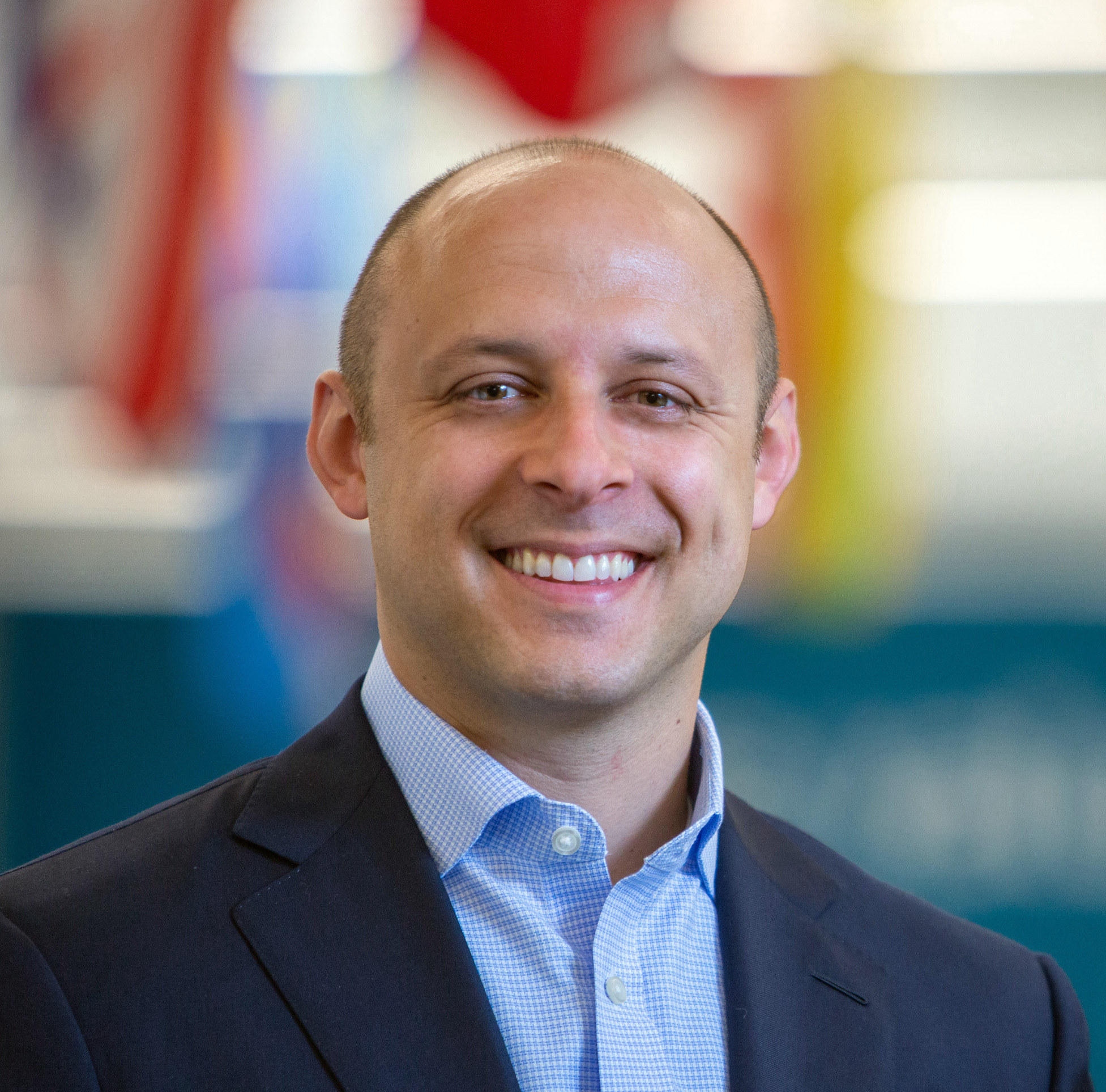
Seth Morales
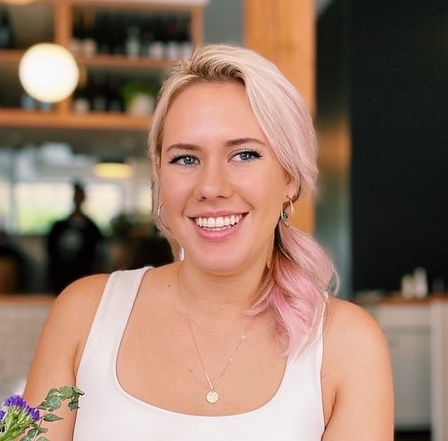
Tori Updike
Today's Guests
